To Snack or not to snack…that is the question. From apples to oranges, chips to 100 Calorie snack packs, protein bars to protein shakes, there are a wide array of snack items to choose from. Many of my clients are confused by the three fixed meals and no snacking or is it six mini meals? They come to me frantically looking for answers. Research has actually proven that healthy snacking may be beneficial to weight loss as opposed to the eating pattern of three meals a day.
A snack defined by the Random House dictionary is “a small meal eaten between regular meals.” You know those times where you just finished eating a sandwich yet you still feel the need to have that treat to top the meal off. The “I need something sweet”, craving that hits at 4 pm. This type of snacking behavior needs to be addressed for those looking for weight loss. Old habits will need to be replaced by new ones and healthier relationship with food will be adopted.
Educating Yourself on Quality Snacks
Snacks can also be regarded by their quality and composition. High quality snacks are those composed of high nutrient value, representing a good source of vital nutrients such as carbohydrates, protein or unsaturated fats. Examples include fruits, vegetables, and proper servings of complex carbohydrates versus the low quality snacks which account for most packaged items that are low in nutritive value and higher in calories, including candies, cookies and chips. In this case, it’s what you eat, not when you eat, that is the issue and this is the type of snacking I like to encourage.
Some practitioners may object to snacking due to the fact that it may be promoting grazing behaviors. As health professionals we hope that your weight loss goals will break old habits, therefore suggesting only 3 fixed meals daily can be subjective. Other concerns of snacking may be to avoid the association of snacking on processed foods that encourage a higher total calorie intake. Keep in mind that 22 pretzels supply as much as 150 calories, a 2 oz brownie can contribute as much as 400 calories, and a 99 cent bag of potato chips can provide 300 calories, all with very little nutrient value. Not that 100 calorie snack packs are any better due to the fact that they contain simple sugars which do nothing to satiate hunger.
Educating yourself is crucial for optimal success. It is important to follow up with dietitians and learn how to incorporate snacks into your meal plan avoiding to exceed total calories for the day. Total calorie needs vary on your height, current weight, age, gender and activity level. As long as you are below your maximum caloric intake for the day which is based on your basal metabolic rate (BMR- which is the amount of calories needed for survival) it is safe to add 200-300 calories from snacks per day in between meals, of course with the addition of exercise. I commonly recommend eating every four to five hours to prevent uncontrolled blood sugars and feelings of hunger.
Fiber and Protein
The two power nutrients that work synergistically include fiber and protein. Protein is necessary in the diet to carry out the work of the living cell by serving as enzymes, receptors, transporters, and hormones. It is essential to build, repair, and maintain body tissues and immune function. Fiber on the other hand, is an indigestible plant source found mostly in complex carbohydrates such as oats, barley, bran, skins of fruits and vegetables. Not only do they take longer to digest helping you stay full longer, but also add bulk to stool to help keep you regular- your stomach will thank you.
Consume three fixed meals per day in conjunction to two high fiber high protein snacks in between to prevent overeating at meal time, and especially preclude late night snacking after dinner time. Usually what happens is when you go long hours without eating, or try to diet or “watch” what you eat for early hours of the day you will make up by ingesting more calories at nighttime feasting like a king. Sound familiar?
Wise Snacks
To keep your calorie intake in check and get the most nutrition out of your foods be sure to choose foods greater than three grams of fiber and less than 10 g sugar in addition to high protein content. NuGo Slim bars pack 7g fiber and 17g protein with only three grams of sugar. Such power snacks may be easily obtainable if pre planned, brought from home, or found at local delicatessens, even the nearest Seven Eleven as they have been catering to health conscious snackers.
Wise snacks include the following which are high in protein, high in fiber, and approximately 200 calories each:
- NuGo Slim Bar
- 2 oz of sliced turkey on Multi Grain English muffin
- 8 oz protein shake with ½ cup of a high fiber cereal
- Baby Carrots with 2 tbsp hummus
- 1 cup low fat plain greek yogurt w/ berries
- 2 tbsp peanut butter and apple slices
Happy Snacking!

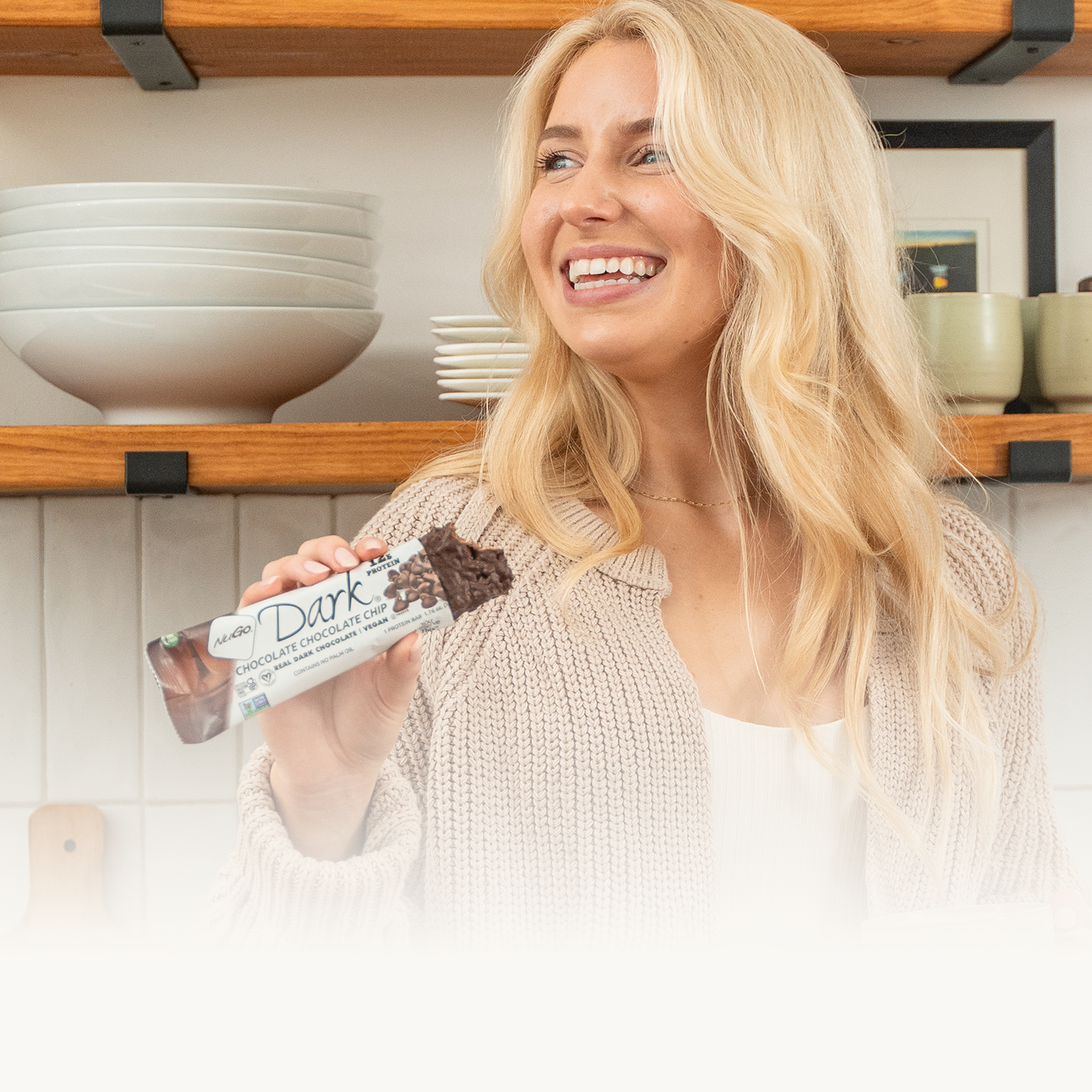
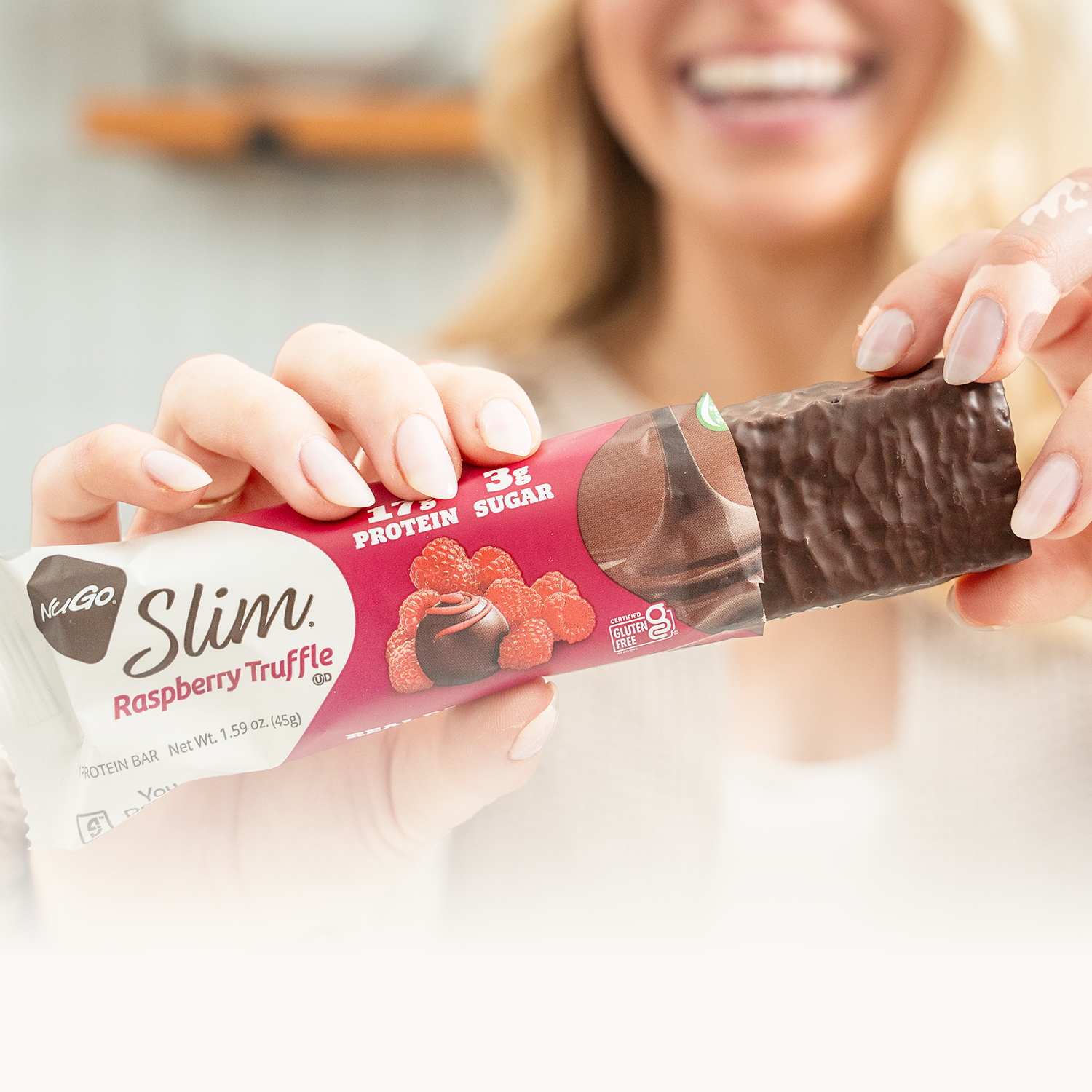
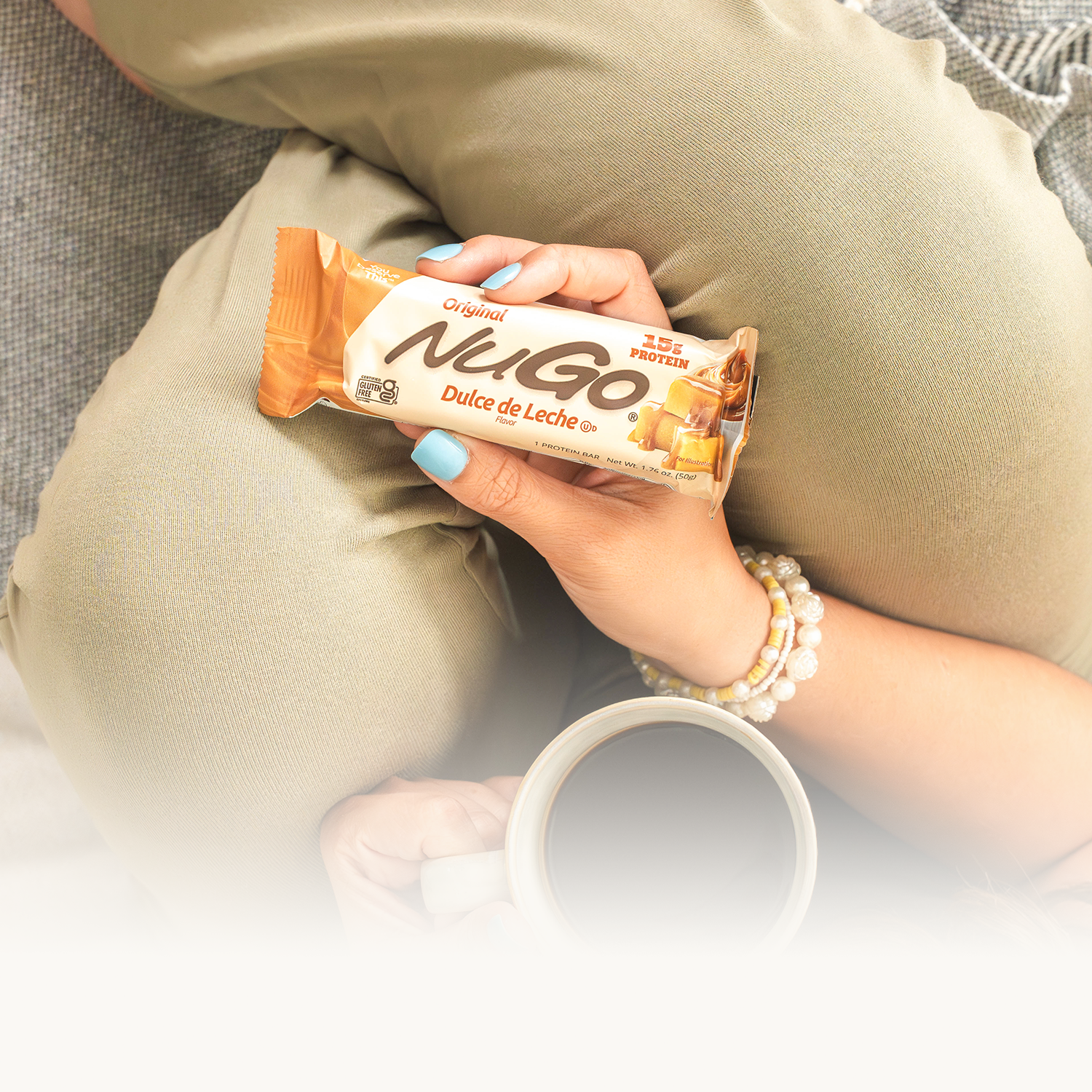
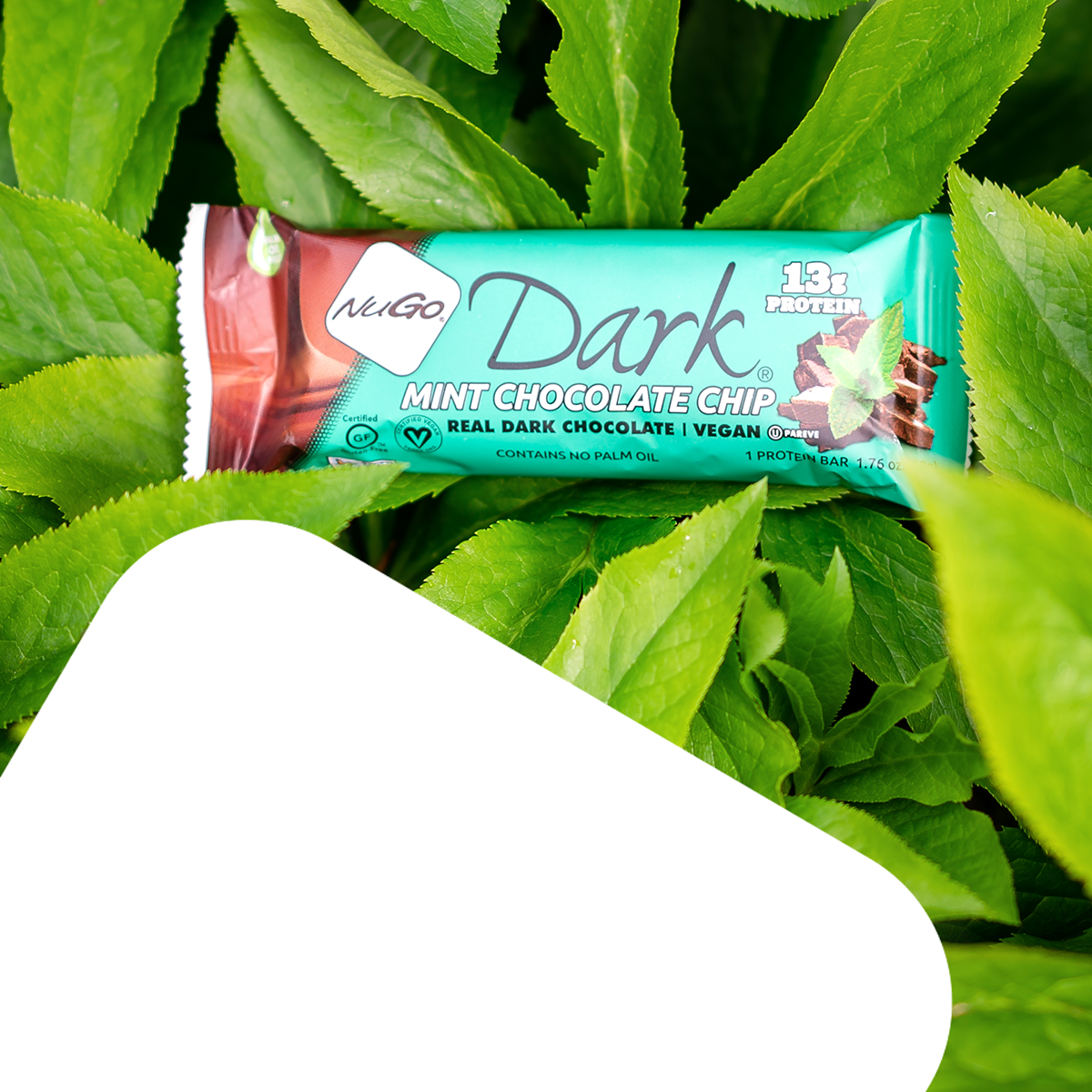
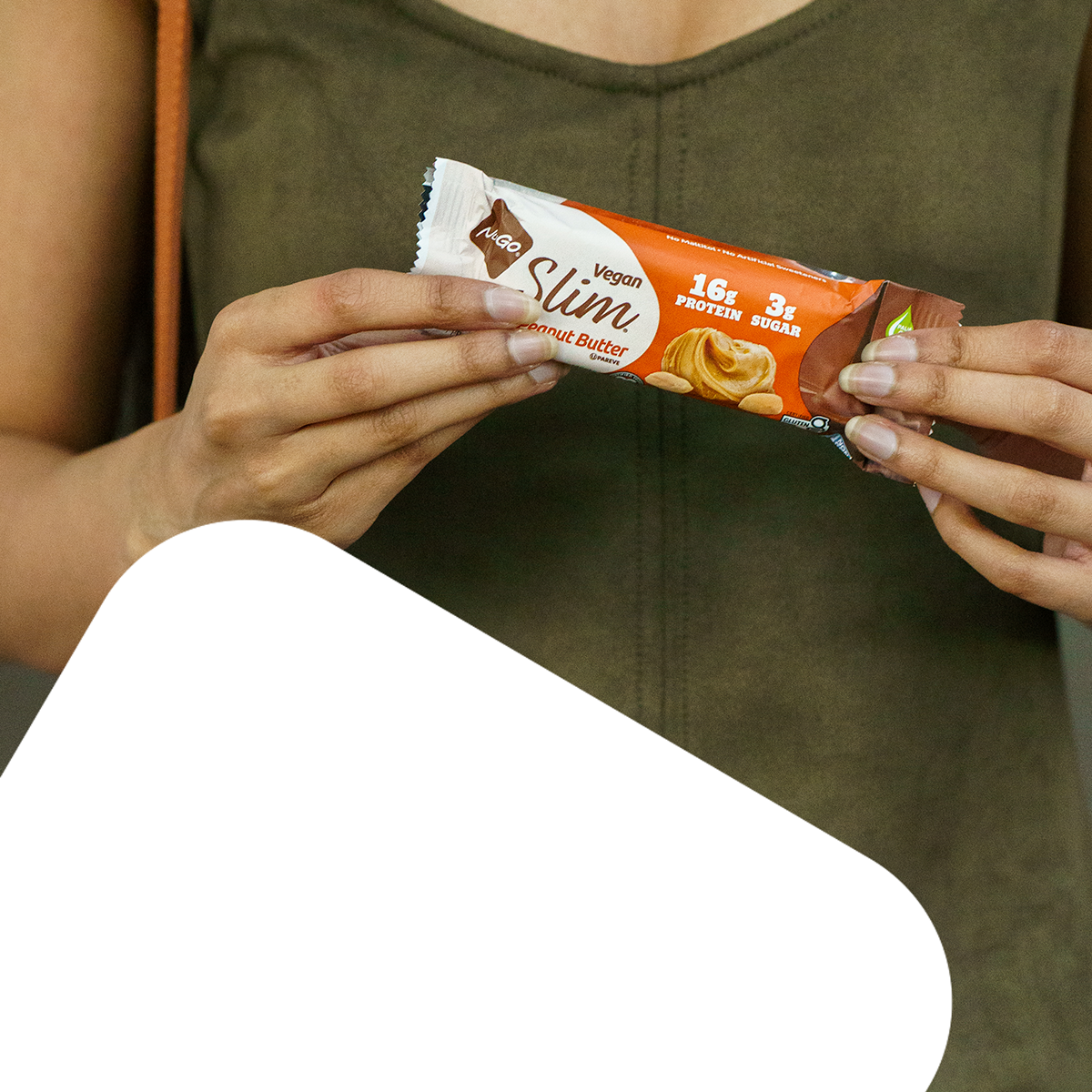
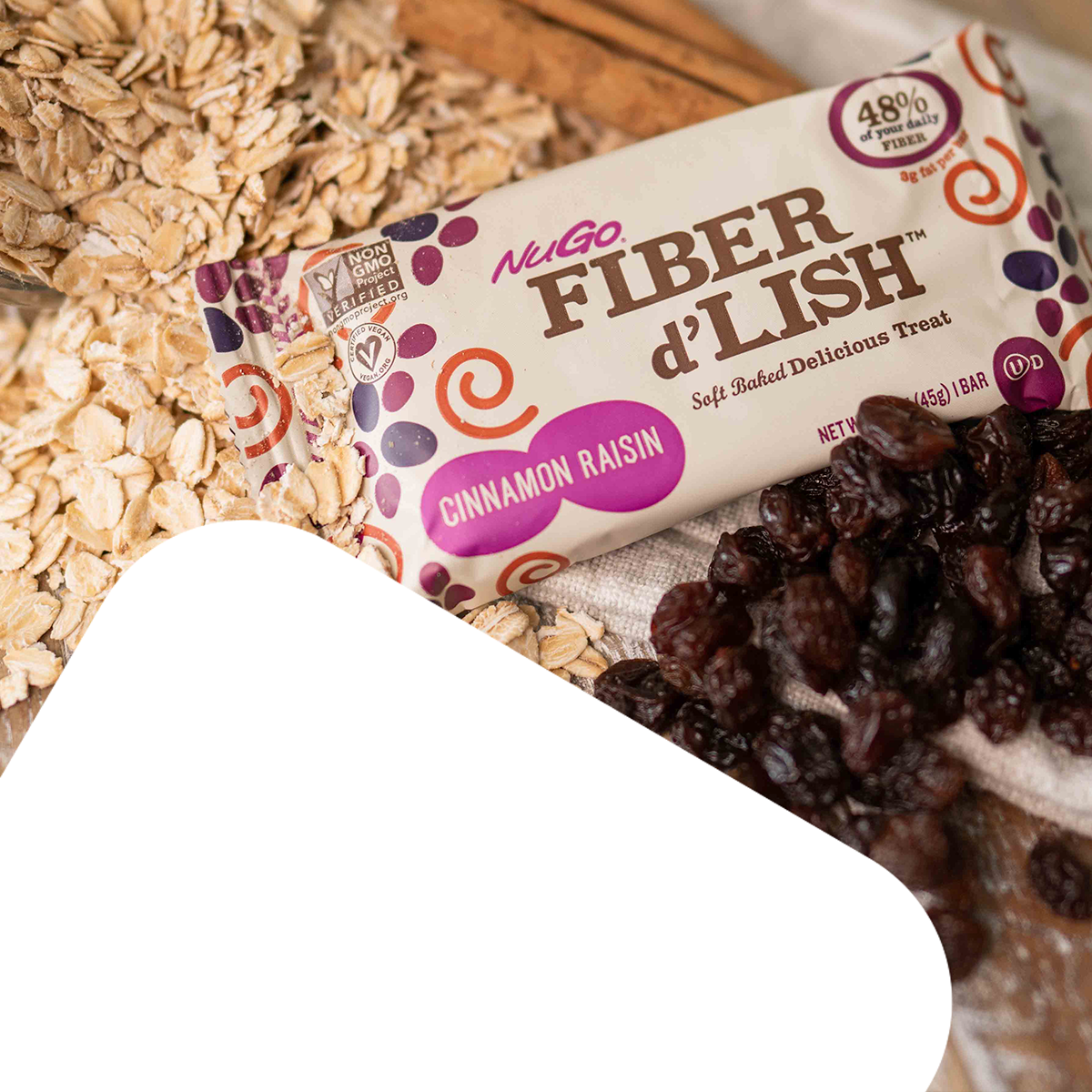
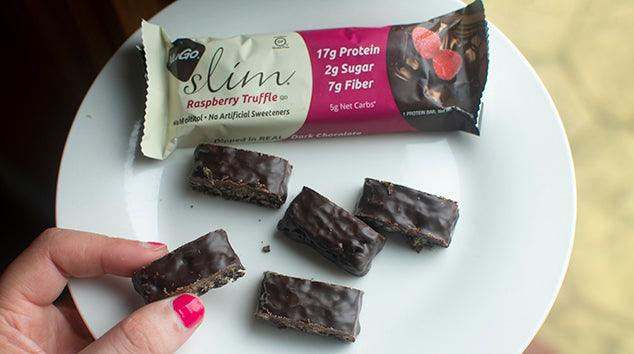

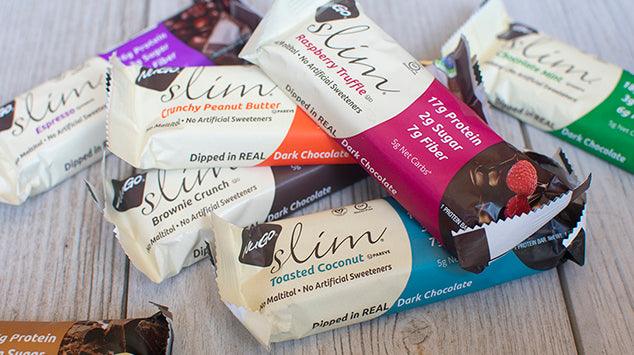
Leave a comment
This site is protected by hCaptcha and the hCaptcha Privacy Policy and Terms of Service apply.